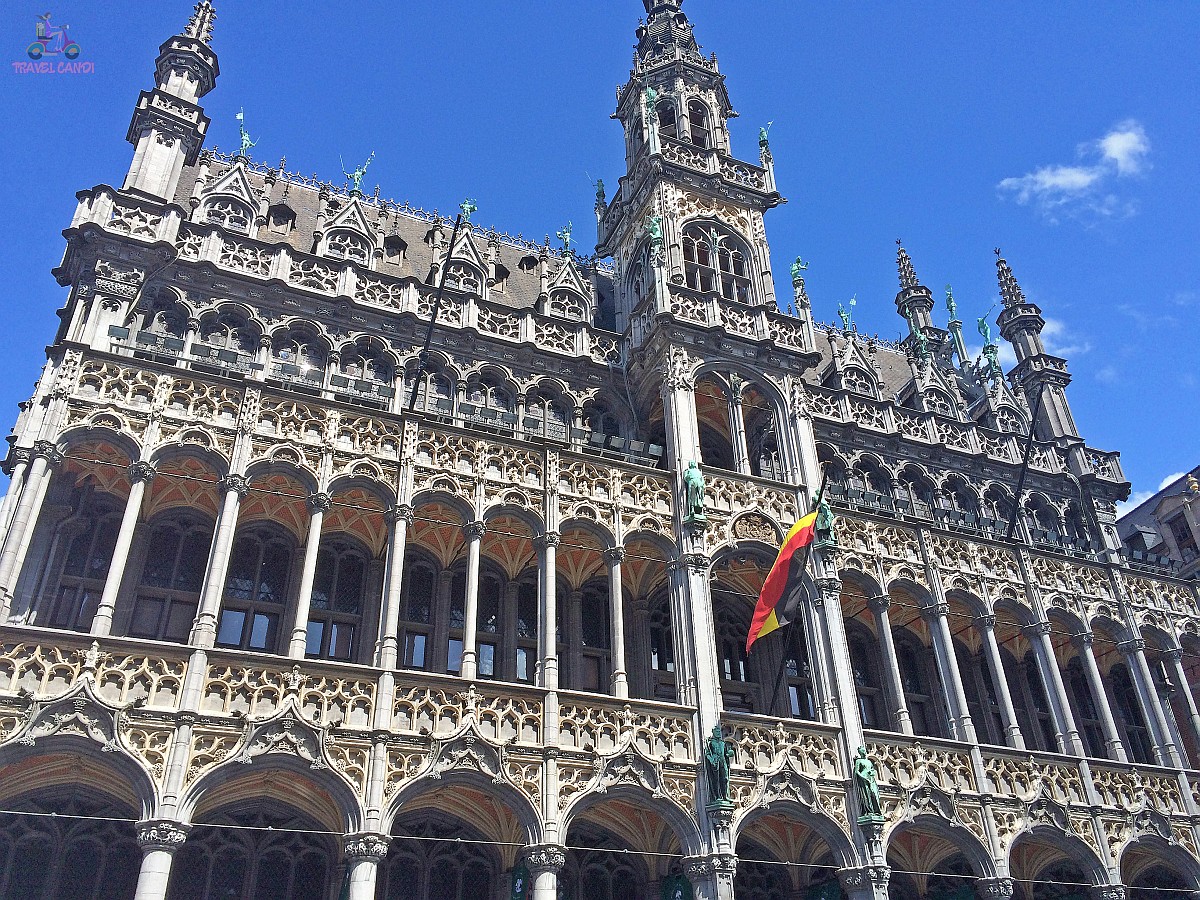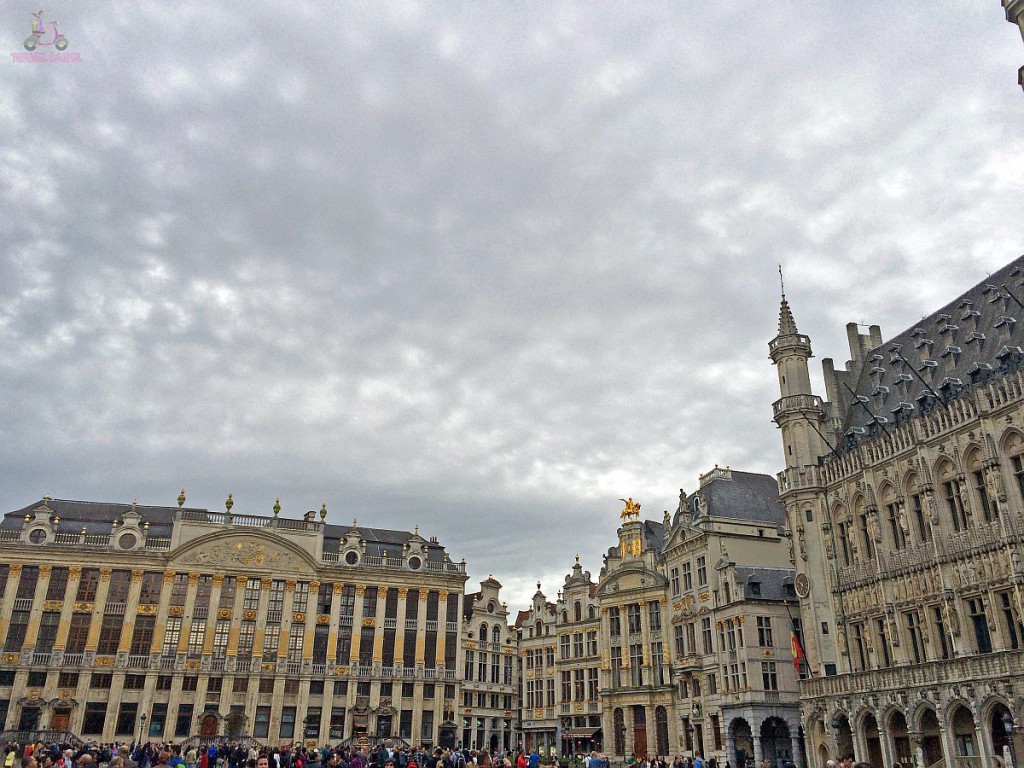Belgium

The land of distinct, flavorful beer and delicious mussels, Belgium has much more to offer travelers than its famous gastronomy. There are ancient medieval towns, adorable and historic cities, war tales and museums. Don’t skip over Belgian. Not only will you be able to satisfy your architectural, historical and cultural cravings, your stomach will thank you as well!
Getting There And Around
Many international visitors arrive to Belgium via its capital city, Brussels. This city is home to the Brussels National Airport and three major train stations (Midi, North and Central). High-speed train company, Thalys, connects Brussels to Amsterdam, Cologne and Paris. High-speed train company, Eurostars, connects Brussels to London. Connecting rail service within Benelux is quick and cheaper than air travel.
Road conditions within Benelux countries are excellent, which makes driving around these countries easy. The roads are well marked and usually free of congestion on major highways. It is smart to park your car while visiting major cities, and explore the cities via foot or public transportation, since parking can be expensive and traffic may occur during certain hours of the day.
The Benelux countries possess one of the world’s most well connected and efficient rail systems. There is virtually no area within Benelux that cannot be reached via train, so getting around is quick in easy. Belgium participates in Eurailpass and also in Belelux Pass. Trains in Belgium are clean, comfortable, and the best option when traveling internally.
Money
Belgium is a member of the European Union and uses the euro as its official currency. The euro has eight coins belonging to the currency, ranging from 1 cent to 2 euros. The smallest denominations of change are bronze colored, and the one and two-euro coins are gold and silver colored. Banknotes for the euro range from 5-500, and vary in size depending on the denomination. When the size of the banknote is larger, the value of that bill is higher.
Language
Dutch (Flemish), French, and German are the official languages spoken in Belgium. It varies by region which language is spoken, with German being the least prevalent language spoken in the country. English is spoken throughout the country; it is often a second or third language for local Belgians.
Housing
Lodging in Belgium ranges from hostels to extravagant five-star accommodations. Depending on the geographical location and season, accommodations can be as low as 15 EUR for a bed in a dorm room. Privately rented accommodations are Belgium’s hidden treasure; the private apartments are inexpensive and provide more space with a homey feel. I rented a great two-bedroom apartment right in the main square in Brussels for 40 EUR a night!
Food
Belgium is a food lover’s paradise, a chocolate addict’s dream and a beer fanatic’s heaven. Belgium cuisine reflects the cuisines of neighboring Belgium, Germany, the Netherlands and many countries’ cuisines. The most popular and famous Belgium dishes are moules-frites (mussels and fried potatoes), boudin (sausages), carbonade flamande (Belgian stew), waffles (a sweet street treat), and smoutebollen (deep-fried dough balls). It is believed that deep-fried potatoes originated in Belgium. Fries are extraordinarily popular in Belgian culture.
For a small country, Belgium produces a wide-variety of flavorful and strong beers. The beers are served in a unique shaped glass that is considered to improve its flavor. Failure to serve the beer with a correct glass is almost a sin in Belgium. The wide variety of Belgian beers allows it to be properly paired with meals, and sometimes food is even cooked with beer.
Save Cash
Avoid taking a taxi while in Belgium – they’re expensive! Instead, take advantage of public transportation. If you are planning on exploring far-out parts of the city, buying a day pass versus a single ticket will save you money.
Be careful when dining at restaurants. Frequently, bread is delivered to your table for an additional cover charge. Also, drink beer. With the abundance of breweries in the country, it is often cheaper than soda or bottled water.

Stay Fit
Belgium is an ideal country for bikers. There are special paths for bicycles in cities and towns, and there is also an extensive network of long-distance bike paths throughout the country. Tour companies offer cycling packages and hotels often have information available to guests. It is best to contact the country’s national tourist office for information when planning a cycling trip.
Belgium’s tap water is fresh, pure and tasty. Refilling a water bottle is a great way to save some cash and to stay hydrated during your trip.
Stay Connected
Belgium is well connected. A majority of accommodations, bars, cafes and restaurants offer Wi-Fi for free for guests. For those who need to be connected 24/7, prepaid SIM cards can be purchased at any of the local mobile carrier shops. Keep in mind; foreign SIM cards will only work on unlocked mobile phones.
Similar to many European countries, Belgium uses the standard 220V, two-prong type-C/F electrical outlets.

 figcaption>
figcaption>